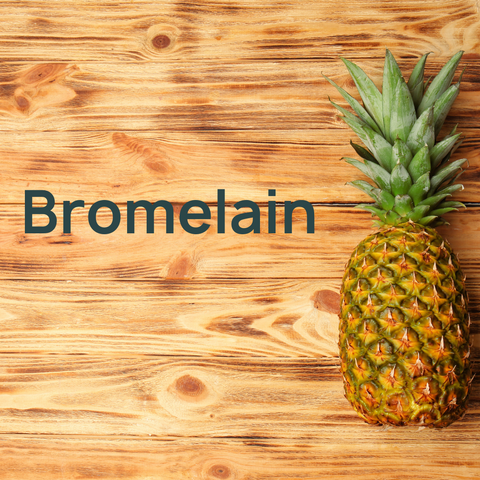
Histamines are chemicals that are released from a type of cell called a mast cell. It is generally released whenever there is an allergic reaction in our body. Let it be sinusitis, nasal polyps, seasonal allergies, rhinitis, asthma, viral or bacterial infections, insect bites, or any injury due to toxins, histamine and other inflammatory mediators will be released in our body. Histamine is released in response to an antibody called Immunoglobulin E (IgE).
We know many antihistamines that help to block the actions of these histamines. Most of us have taken antihistamines for our allergies, a cold, sinus issues or asthma. But did you know there are natural antihistamines as well?
Many plants, fruits and herbs act as natural antihistamines. So in this blog, we will see some natural antihistamines which can help to combat the ill effects of histamines and other inflammatory mediators.
- Quercetin

Quercetin is a flavonoid present in many vegetables and fruits. It shows anti-inflammatory, anti-allergic, antihistamine, antioxidant, and antiviral properties. It helps to stabilize the cells that release histamine. Among the various sources of Quercetin, capers and onions contain the highest amount of Quercetin, while black and green tea contains the lowest amount.
Due to its anti-inflammatory and immune-modulating properties, Quercetin can be effectively used in the management of asthma, allergic rhinitis, and food allergies.
Quercetin is a potent anti-allergic ingredient present in many anti-allergic drugs. It is said to be more potent than cromolyn sodium, a mast-cell stabilizer (an anti-allergic drug).
Quercetin-rich foods include-
- Red wine
- Apples
- Onions (highest amount of Quercetin)
- Potatoes
- Green tea
- Black tea
- Papaya leaves
- Chilli pepper
- Kale
- Honey
- Red grapes
- Cherries
- Citrus fruits like lemons, and oranges
- Berries
- Leafy green vegetables like broccoli
- Ginger
- Almonds and pistachios
- Banana
- Kaempferol
Kaempferol is another bioflavonoid present in many vegetables and fruits. It shows antioxidant, antihistamine and anti-inflammatory properties. It inhibits the release of histamines and other inflammatory mediators in our blood.
Foods containing Kaempferol include-
- Honey
- Banana
- Green leafy vegetables, including broccoli, kale, spinach, lettuce, cabbage, asparagus, chives, etc.
- Citrus fruits like strawberries, tomatoes, blackberries, and blueberries.
- Almonds
- Onions
- Berry
- Apples
- Cherry
- Black tea
- Fisetin
Fisetin is another natural antihistamine present in many vegetables and fruits. It is a flavonoid with many medicinal properties such as anti-inflammatory, anti-allergic and antihistamine. It is said to inhibit the release of histamines by inhibiting mast cell activation. Mast cells are a type of cells which releases histamine and other pro-inflammatory mediators during any allergic reaction.
Foods rich in Fisetin include-
- Strawberries are among the highest source of Fisetin.
- Apples
- Onions
- Grapes
- Kiwi
- Myricetin
Myricetin is a bioflavonoid that acts as a natural antihistamine. It is known to stabilize the mast cell and thereby prevent histamine release and inflammation in the body.
- Berries including blackberry, blueberry, cranberry, and strawberry.
- Oranges
- Nuts
- Red wine
- Black tea
- Vegetables like carrots, cauliflower, spinach, turnip, and peas.
- Rutin
Another flavonoid that shows antihistamine effects is Rutin. It is also rich in antioxidants and shows anti-inflammatory properties. It helps to prevent the histamine release from the mast cells by stabilizing them and reducing inflammation.
Dietary sources of Rutin include-
- Apples
- Buckwheat
- Figs
- Green and black tea
- Cherries
- Grapes
- Plums
- Vitamin C

Vitamin C is a water-soluble vitamin. It shows antioxidant, immune-building and anti-inflammatory properties. It also acts as a natural antihistamine. It reduces the level of histamine in our body and thereby reduces allergic symptoms and inflammation.
Foods containing vitamin C include-
- Citrus fruits like lemon, orange, grapes, kiwi and tomatoes
- Pepper
- Papaya
- Strawberries
- Broccoli
- Cabbage
- Cauliflower
- White potatoes
- Brussels sprouts
- Probiotics

Studies have shown that some probiotics like Lactobacillus and Bifidobacterium species can help to reduce inflammation caused by allergies. These probiotics help to maintain a healthy gut.
You will be surprised to know that Bifidobacterium makes up 90% of gut bacteria and is the first bacteria which is found in our gut as soon as we are born.
Some probiotic foods include-
- Yogurt
- Buttermilk
- Cottage cheese
- Bromelain

Bromelain is an enzyme found naturally in pineapples It is a natural antihistamine. Generally, people with inflammatory conditions like asthma, sinusitis or even arthritis take bromelain supplements to reduce the inflammation by preventing the release of histamine in the blood.
- Curcumin

The main chemical compound found in Turmeric is curcumin. It has strong anti-inflammatory properties, for which it is used in wound healing. It helps to reduce allergies by preventing mast cells from releasing histamine.
Conclusion:
Including foods rich in antihistamines, in your diet can help naturally fight and reduce allergic reactions.




